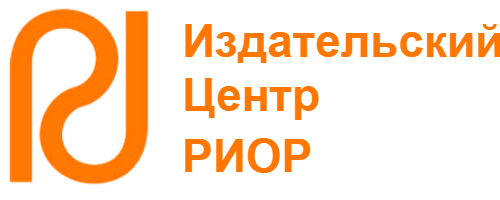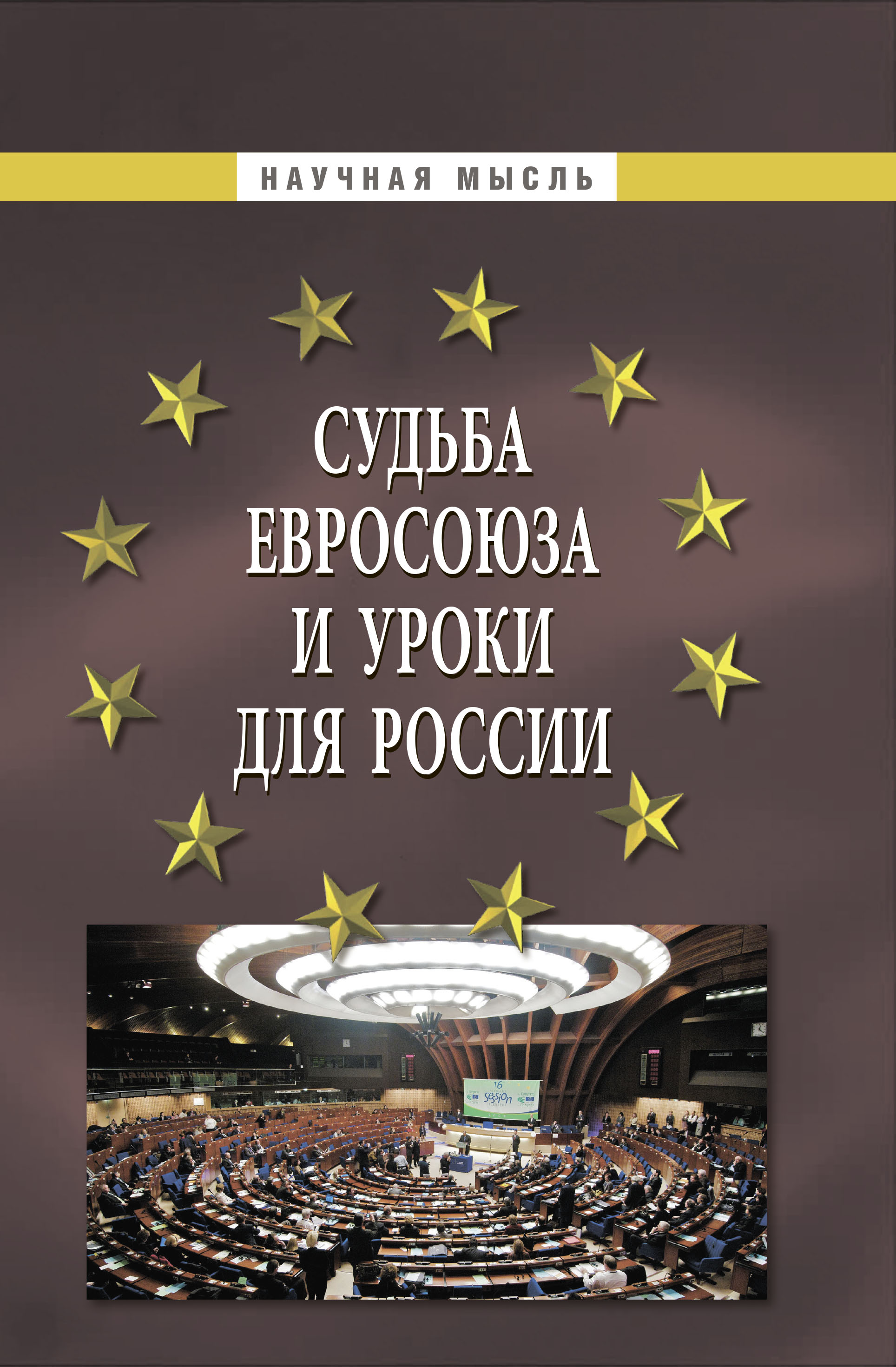Penza, Russian Federation
Penza, Russian Federation
Saratov, Saratov, Russian Federation
Russian Federation
from 01.01.2002 until now Penza, Penza, Russian Federation
from 01.01.2006 until now
Penza State University (kafedra "Teoriya gosudarstva i prava i politologiya", aspirant)
from 01.01.2020 until now
Russian Federation
Russian Federation
Russian Federation
Russian Federation
Russian Federation
Russian Federation
Russian Federation
Russian Federation
VAK Russia 12.00.10
UDC 32
UDC 34
CSCSTI 10.87
CSCSTI 10.91
CSCSTI 11.25
Russian Classification of Professions by Education 40.06.01
Russian Classification of Professions by Education 40.03.01
Russian Classification of Professions by Education 40.04.01
Russian Library and Bibliographic Classification 66
Russian Library and Bibliographic Classification 662
BISAC LAW000000 General
BISAC POL000000 General
The monograph reveals the history of the creation of the European Union and its current situation, which is characterized by instability and lack of genuine unity. In an effort to integrate everything and everyone in a short time, European leaders and officials have overestimated their strength. Meanwhile, every European country retains its identity and is in no hurry to give it up. Russia and the participants of integration interstate associations should learn lessons from the fate of the European Union: not to force rapprochement, not to encroach on the state sovereignty of its members, to respect the opinion of ordinary people. The publication is intended for specialists in the field of European politics, European law, international relations, as well as for a wide range of readers interested in the political life of Europe.
European Union, interstate integration association, dynamics of European integration, federalization, European law, European Court of Human Rights
К ЧИТАТЕЛЮ
Евросоюз как первое в мире межгосударственное интеграционное объединение широкого профиля, контуры которого были прописаны в Римском договоре 1957 г., в 2017 г. отметил свое 60-летие. За этот срок организация накопила солидный опыт — как позитивный, так и негативный. С одной стороны, беспрецедентный союз европейских государств и народов породил немало смелых и радужных ожиданий и вызвал со стороны отдельных стран и экспертов желание подражать. С другой стороны, стремление получить «все и сразу», действовать вопреки складывающейся ситуации, игнорировать тревожные сигналы, подаваемые общественностью, привело к кризису в объединенной Европе. Насколько серьезным и длительным он будет — сказать трудно. Но из происходящего требуется сделать выводы.
Авторы данной монографии посчитали необходимым рассмотреть не только истоки и динамику развития Евросоюза, но и своеобразие положения, складывающегося в ведущих государствах-членах. Анализу подвергаются те или иные историко-государственные традиции конкретной страны, которые влияют или могут повлиять на ситуацию в ней. Описываются конституционно-политическая система и партийный ландшафт, социально-экономическое положение, взаимоотношения с Евросоюзом. Определенный интерес представляет состояние общественного мнения. Все упомянутые характеристики, несомненно, будут весьма сильно отличаться друг от друга для каждой страны. Они самым наилучшим образом свидетельствуют о трудностях евроинтеграции и одновременно призваны навести на мысль, что форсирование объединительных процессов неконструктивно для любых союзов. Это требуется принимать во внимание и на просторах Евразии, где несомненным лидером интеграции является Россия.
Авторский коллектив особо отмечает вклад Института Европы РАН в исследование европейской проблематики и выражает благодарность его директору, члену-корреспонденту РАН А.А. Громыко за возможность использовать регулярно присылаемые в адрес Пензенского регионального отделения Ассоциации европейских исследований труды Института.
1. Avramenko S. L. The new Constitution of the Swiss Confederation: law and modernity / / State and law. 2001.
2. Andreeva T. Great Britain and European integration processes after the Eurocrisis / / World Economy and International Relations. 2014. November.
3. Antropov V. The European social model and the policy of austerity / / MEMO. 2017. No. 3.
4. Arzakonian M. Ts, Revyakina A.V., Uvarov P. Yu. History of France. M., 2005.
5. Babynina L. O. The countries of Northern Europe and differentiation in the EU / / Modern Europe. 2007. № 3.
6. Babynina L. O. The significance of BREXIT for the European Union // Modern Europe. 2016. No. 4.
7. Biryukov S. V. The Belgian crisis and "Europe of the regions" / / Free Thought. 2009.
8. Branitsky A. G. ERITUNAEUROPA? The history of the unification of Europe: contradictions, projects, prospects. N. Novgorod, 2006.
9. Borko Yu. A. From the European idea-to a united Europe. M., 2003 Great Britain. The Era of Reforms / edited by Al. A. Gromyko. M., 2007. The states of the Alpine region and the Benelux countries in a changing Europe / ed. by V. A. Schweitzer. M., 2009.
10. Germany. Challenges of the XXI century / edited by V. B. Belov. M., 2009.
11. Glinkina S. P., Kulikova N. V. What kind of capitalism is built in the countries of Central and Eastern Europe / / New and modern history. 2017. № 6.
12. Golub K. Yu. The Court of the European Communities and the problems of the development of the legal system of the European Union. Saratov, 2009.
13. Gromyko A. A. Modernization of the party system of Great Britain. M., 2007.
14. European integration / edited by O. V. Butorina. M., 2011. European law. The law of the European Union and legal support for the protection of human rights / author's note and ed.by L. M. Entin. 3rd ed., revised. and additional M., 2012.
15. Zhiryakov I. G. The form of the Austrian state. M., 2006.
16. Zueva K. P. The French about the future of the European Union: a confederation or a federation? // World economy and international relations. 2014. № 11.
17. Isaev M. A., Chekansky A. N., Shishkin V. N. The political system of the countries of Scandinavia and Finland. M., 2001.
18. History of the southern and Western Slavs. Modern times / edited by G. F. Matveev, Z. S. Nenasheva. M., 2008.
19. Kaveshnikov N. Institutional and political development of the EU: crisis and transformation options / / World economy and international relations. 2017. May.
20. Kapustin A. Ya. The law of the Eurasian Economic Union: international legal discourse / / Journal of Russian Law. 2015. No. 11.
21. Karakulyan E. A. European neo-federalism: process, system, identity. N. Novgorod, 2003.
22. Kashkin S. Yu. Integration justice: the essence and prospects: monograph / ed. S. Yu. Kashkin. M., 2014
23. Kashkin S. Yu., Kalinichenko P. A., Chetverikov A. O. Introduction to the law of the European Union / ed. by S. Yu. Kashkin. 3rd ed., reprint. and additional M., 2010.
24. Klemin A. FRG: the correlation of international and national law // Modern Europe. 2017. № 2
25. Kovalev I. G. The problem of constitutional reforms of Great Britain in the new political realities / / The course, results and consequences of the all-general parliamentary elections of 2015 in Great Britain. Reports of the Institute of Europe No. 319. M., 2015
26. Kovler A. I. European integration: a federalist project (historical and legal essay). Moscow, 2016.
27. Kovler A. I. Complaints against the Russian Federation in the European Court of Human Rights (preliminary results of 2011) // Russian Justice. 2012. № 2 (70).
28. Kodaneva S. I. British regionalism (constitutional reform). Moscow, 2004.
29. Lalaguna H. Spain: The History of the country. Moscow, 2009.
30. Leksin I. V. The state structure of federations within the European Union. Moscow, 2014.
31. Malko A.V., Elistratova V. V. On the problem of the formation of the Eurasian Economic Union as a new model of interstate unification // Legal policy and legal life. 2014. No. 1.
32. Marchenko M. N. The European Union and its judicial system. M., 2013.
33. Marine Le Pen. In the name of France. M., 2016
34. Medvedev L. A., Sindeev A. A. The history of Western European integration (40-90-ies of the twentieth century): The creation of the European Union. 80-90s. Tver, 1999.
35. Meshcheryakova O. M. The Lisbon Treaty and the new European Union. Moscow, 2011.
36. Ostapenko G. S., Prokopov A. Yu. The modern history of Great Britain of the XX-XXI centuries: textbook. manual. M., 2012
37. Patrushev A. I. German chancellors from Bismarck to Merkel. M., 2009.
38. Potemkina O. Yu. Immigration policy of the European Union: results and new challenges / / Migration problems in Europe and ways to solve them. Reports of the Institute of Europe No. 315. M., 2015.
39. Reinhard F. History of Switzerland. Moscow, 2013
40. Salomatin A. Yu. World History of the state and public administration. Moscow, 2013.
41. Sarracin T. Germany: self-destruction. The death sentence of Germany has already been passed. Moscow, 2010
42. Sardaryan G. T. Transformation of the political and territorial structure of Italy // Italy: from the Second Republic to the Third? Reports of the Institute of Europe No. 316. M., 2015
43. Strategy for the development of justice in the context of globalization / ed. A.V. Malko, A. Yu. Salomatin. M., 2017.
44. Akrodov I. M. Immigrants and European identity in the XXI century / / The European way for Russia: pros and cons. Voronezh, 2017.
45. France in search of new ways / edited by Yu. I. Rubinsky. M., 2007.
46. Henkin S. M. The changing face of the party system in Spain / / Elections and election campaigns in Europe (2014-2015) Reports of the Institute of Europe. Moscow, 2015. No. 320
47. Kholodkovsky K. G. The difficult restructuring of the Italian political system / / The Italian Republic in a changing world. Reports of the Institute of Europe No. 306. M., 2014
48. Central and Eastern Europe in the second half of the XX century: in 3 volumes / ed. S. P. Glinkina. M., 2002
49. Shatokhina-Mordvintseva G. A. History of the Netherlands. M., 2007.
50. Schweitzer V., Tarshin A. The European Union: critics and apologists // Modern Europe. 2016. № 1.
51. Entin K. V. The law of the European Union and the practice of the Court of the European Union. Moscow, 2015.
52. Schwartze J. Balancing EU Integration and National Interests in the Case-Law of the Court of Justice // The Court of Justice and the Construction of Europe. Analysis and Perspectives on Sixty Years of Case Law. The Hague. 2013.
53. The European Union Explained: The Founding Fathers of the EU. Brussels, 2013.
54. Von Bogdandy A. Neitheran International Organization nor a Nation State: The EU as a supernational Federation//The Oxford Handbook of the European Union. Oxford. 2012.








